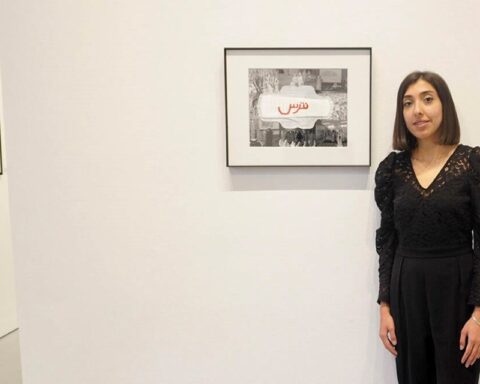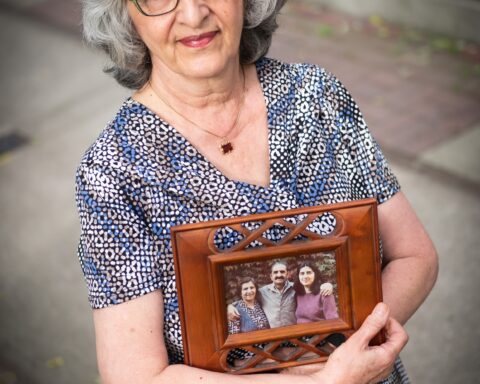On March 15, the Faculty of Social Sciences at the University of Ottawa held a day-long symposium on Afghanistan. It was not the first one that I had attended, but probably the best organized and most fruitful. Apart from the hard work by the organizers, what was impressive was the input by the three main speakers — all Afghanis. We are so used to symposia and lectures delivered by western experts, who have spent a few years in the country or who have written a paper about it. But this was different and it showed.
No one should underestimate the multi-faceted problems in Afghanistan — a country that has seen many more years of conflict, occupation and war than of peace and one where poverty, disease, illiteracy, corruption and injustice are the norm. However, I came out of the symposium with genuine hope for the future, mainly because of the wisdom of its people, as represented by the main speakers. Apart from a well-spoken Ambassador, Barna Karimi, there was a former cabinet minister, Mohammad Haneef Atmaar, the current Deputy Minister of Finance, Dr Mohammad Mustafa Mastoor, and last, but not the least, Fatima Gailani, the very well-spoken, knowledgeable president of the
Afghanistan Red Crescent Society, who clearly won the hearts of the audience, because she spoke from the heart, but also with lots of facts and figures to support her views.
interview. Fatima is a household name in Afghanistan due to her famous father, the family originating in Iraq decades before. Because of her connections, everyone assumed that she would be appointed cabinet minister, if she wanted the job. She did not, but preferred to work at the grassroots, with the sick and destitute, and joined a group of eight other women who dedicated themselves to social service. They started as female representatives in the constitutional committee, among 30 men, and remain a close circle of “sisters” to date. The close, street-level contact with the needy engendered so much trust that she had almost complete freedom of movement — so much so that even the Taliban asked her for help.
She started just a decade ago. Today, she says with pride, 25 per cent of Afghan parliamentarians are women. She soon became the president of the Red Crescent in Afghanistan and since then that organization has been ranked among the top-15 in the world, despite tenuous funding and other problems. Her ability to reach out resulted in a marked increase in local funding — 70 per cent of which is now from local business people and other local donors.
Still paying with virgins
But what about the numerous problems we hear about, I asked. There were lots, she admitted, especially with regard to the marginalization of women — often wrongly attributed to Islam. She gave me examples. She said that men disagree and fight, while women and children suffer. When she visited jails, she found many women incarcerated — not because they committed any crime, but because they were raped! When someone is injured, the offender often ends up paying compensation in the form of an ox, but when there is a murder, the guilty party pays with one of their young virgins as a bride.
Forced marriages are still prevalent. When the children in a family divide up the estate, the boy receives double the share of the girl and the girl does not dare demand what is her rightful share.
Fatima is passionately opposed to these injustices, repeatedly asserting that they are not approved by Islam. Indeed one of her main messages was that Afghans should fight such injustices and for that, Islam needs to be taught correctly and by the right people.
Like the other two speakers, she was full of hope for her country and for a positive transition in 2014, with the presidential election, and then in 2015, with parliamentary elections. I asked her why she was so optimistic, when the main players were still the same old ones. She shot back: “Many of the previous policies failed because they were driven by non-Afghans. This time, we are going to take into consideration the wishes of the people — the legitimate owners of Afghanistan — and this time, we will move from a war economy to a peace economy.”
And yet, a December report by the U.S. Department of Defence stated: “Widespread corruption and insufficient transparency are the main challenges with respect to the self-sustaining role of the rule of law in Afghanistan.”
“How can you be so sure?” I asked. Her response was: “If this time, we don’t guard and protect our democracy, it will be our fault.” As we shook hands, I felt some optimism about Afghanistan.
Dr. Qais Ghanem’s interview with Fatima Gailani
Dr Qais Ghanem is a retired neurologist, radio show host, poet and novelist. His two novels are Final Flight from Sana’a and Two Boys from Aden College. His non-fiction My Arab Spring, My Canada was published last October. The opinion originally appeared in Gulf News and is being re-published with the author’s permission.




